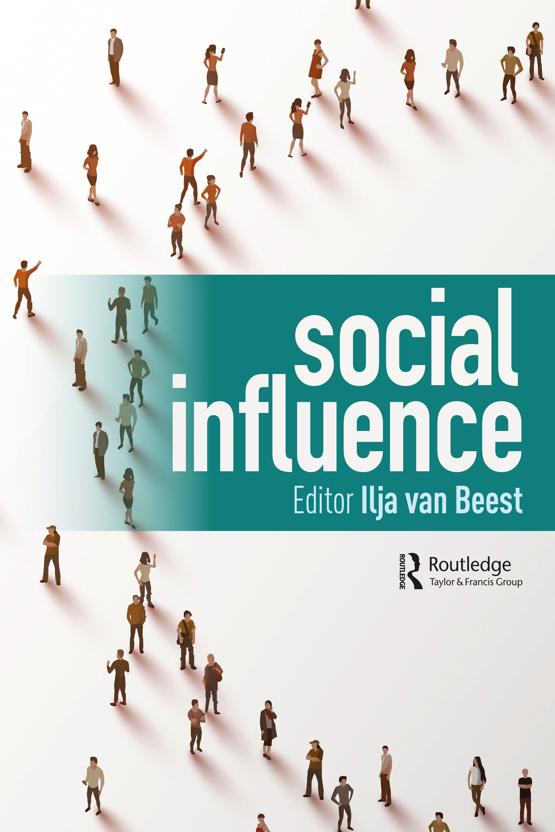Submit a Manuscript to the Journal
Social Influence
For an Article Collection on
Social Influence of Minorities
Manuscript deadline
01 October 2024


Article collection guest advisor(s)
Pinar Celik,
IESEG School of Management, France
[email protected]
Judit Kende,
Tilburg University, Netherlands
[email protected]
Social Influence of Minorities
This article collection “Social Influence of Minorities” accepts original research articles, brief reports, registered reports, and registered proof of concepts. When submitting your article to this collection, please select the Article Collection 'Social Influence of Minorities' from the drop-down menu when it appears.
Social influence, which refers to how individuals and groups affect others, is a foundational concept in social psychology. Large scale global migration trends are arguable causing shifts in power relations between various traditionally advantaged groups and disadvantaged minority groups. While the literature has made considerable progress in understanding how advantaged groups push back against and resist to shifts in group-based power, there is an increasing need to study the social influence processes leading to the potentially increasing power of disadvantaged groups. This special issue seeks to showcase research on the various ways that minorities and disadvantaged groups increase their influence in society, and the factors that promote and hinder those attempts. We focus primarily on the influence of disadvantaged groups, but we are also interested in the influence of minorities in a numerical sense.
We invite empirical contributions from a broad spectrum of fields in psychology, including social, political and cultural psychology. Our specific interest lies in comprehending how minority influence is reciprocally shaped by and shapes the dynamic interaction between minority and majority group members and their social contexts. By amalgamating cutting-edge research and innovative perspectives, we aim to advance the understanding of the multifaceted nature of minority influence in the context of an increasingly complex social landscape.
Key Themes and Topics:
- Strategies and tactics of minority influence: Investigating the various strategies and tactics employed by minorities and disadvantaged groups to increase their influence in society, including advocacy, collective action/activism, political participation, coalition-building, allyship and community organizing.
- Minority leadership and minority influence: Examining the role of minority (political) leaders in advocating for the interests of their communities and influencing decision-making within various social, political, and organizational contexts.
- Minority perceptions of minority influence: Examining factors related to disadvantaged individuals' perceptions of power and their ability to exert social influence.
- Intersectionality and minority influence: Exploring how factors such as race, ethnicity, gender, sexual orientation, and socioeconomic status intersect to shape the social influence of minority groups.
- Intergroup Dynamics and minority influence: Exploring how intergroup contact shapes the influence of minority and majority groups.
- The impact of the cultural and political context: Exploring how cultural norms, values, and political structures impact minority influence.
- Media and Communication: Analysing the role of media representation, communication strategies, and narrative framing in shaping perceptions of minority groups and their ability to exert social influence.
This is a non-exhaustive list, and we encourage submissions that present novel ideas, interdisciplinary approaches, or emerging areas of interest. We are exceptionally interested in contributions that bridge gaps, challenge established paradigms, and provide fresh perspectives on the social influence of disadvantaged groups.
Please note that the journal Social Influence charges article publishing charges but offers discounts and waivers for authors in developing countries and considers requests for discretionary waivers from researchers who aren’t eligible under the above policies. For assistance with your submission and any queries, please contact Commissioning Editor Alice Soteriou at [email protected].
Pinar Celik is an Associate Professor at IESEG School of Management. She earned her PhD in Social Psychology from Tilburg University in 2013. Previously, she held positions at Université Sorbonne in Paris and Solvay Brussels School of Economics and Management. Her research focusses on social judgment and decision-making processes in both fundamental and applied organizational contexts. She explores the role of personality traits, emotions, creativity, cultural dynamics, and diversity management in shaping these processes.
Judit Kende is an Assistant Professor in social psychology at the University of Tilburg as. She received her PhD in 2018 from the University of Leuven in social and cultural psychology and later worked at the University of Amsterdam, the University of Lausanne and the Université libre de Bruxelles. Her research focuses on intergroup relations and equality in the context of migration and ethnic inequality. She is interested in how equality influences how people from different social groups relate to each other and how people from different social groups can challenge inequalities together. Her work was awarded by the Society for the Psychological Study of Social Issues for the best paper in intercultural relations and by the International Academy for Intercultural Research for the best dissertation.
Benefits of publishing open access within Taylor & Francis
Global marketing and publicity, ensuring your research reaches the people you want it to.
Article Collections bring together the latest research on hot topics from influential researchers across the globe.
Rigorous peer review for every open access article.
Rapid online publication allowing you to share your work quickly.
Looking to Publish your Research?
Find out how to publish your research open access with Taylor & Francis Group.
Choose open accessSubmission Instructions
All manuscripts submitted to this Article Collection will undergo desk assessment and peer-review as part of our standard editorial process. Guest Advisors for this collection will not be involved in peer-reviewing manuscripts unless they are an existing member of the Editorial Board. Please review the journal Aims and Scope and author submission instructions prior to submitting a manuscript.